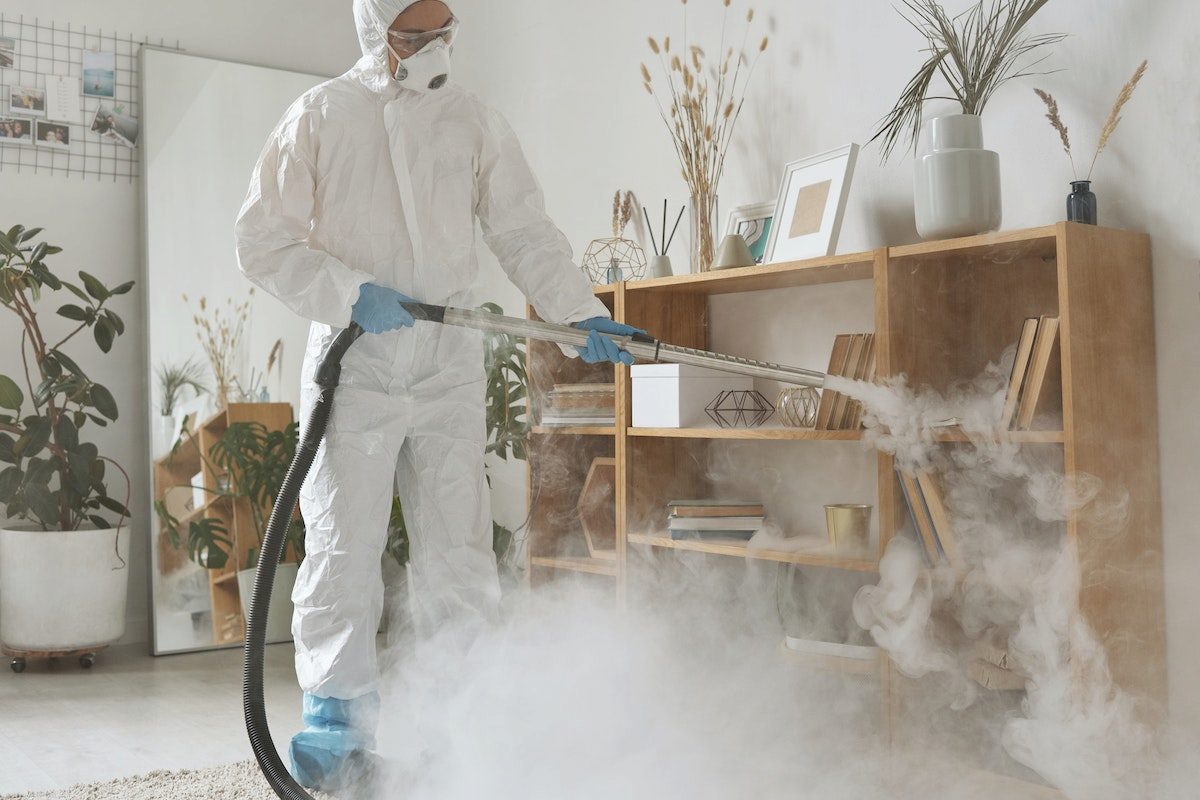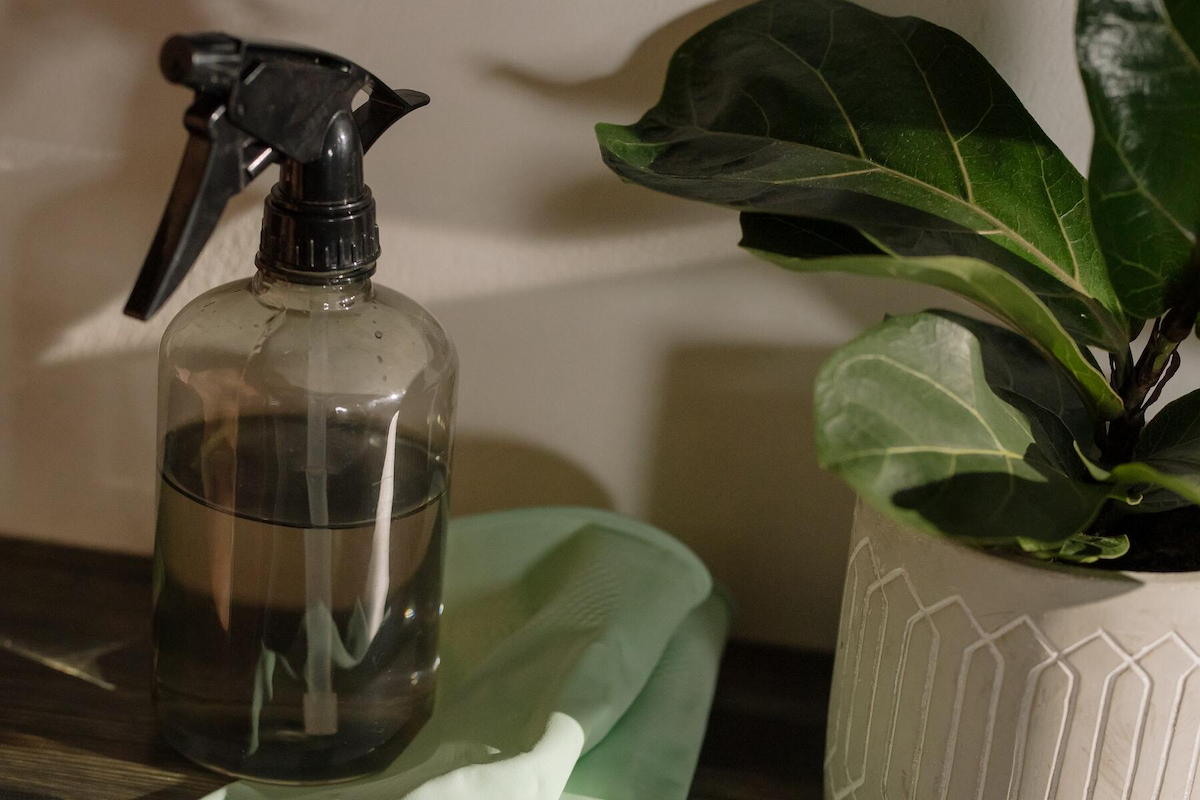Can Termites Be Treated Without Tenting?
Termites can be difficult to deal with. Most treatments to get rid of them take time to start working or involve harsh chemicals that are a threat to you as well.
So can you treat termites without tenting your home?
There are plenty of options to eliminate termites that don’t involve tenting and fumigating your home. Bait stations, liquid treatments, and termite sprays are all ways you can avoid fumigation and still effectively get rid of termites.
Tenting For Termites

Fumigation is a process that sprays airborne chemicals and poisons throughout your home to kill off pests. It’s usually a treatment for termites, roaches, or other insects.
To be effective, a pest professional will need to tent your home. This process involves covering the entire building with tarps to hold in the fumigant.
Once covered, the exterminator will release pesticides, and the tent holding in the fumes allows them to circulate and get into small cracks and crevices that are otherwise unreachable.
The tent is removed once an expert determines sufficient exposure has occurred to eliminate the termite colony. After removing the tent, it takes a minimum of six hours for the fumigant to disperse into the air.
The entire tenting and fumigation process can take anywhere from 24 to 76 hours. Once completed, the expert will go room by room to verify if it’s safe for people to enter the home again.
Fumigation is extremely effective at eliminating termites but does not help prevent infestations.
It also uses pesticides and chemicals that are restricted use, meaning they can not be bought at a store and are harmful to humans.
Fumigation treatments do not leave behind chemicals on household surfaces, so there is no danger of contamination after it has dispersed to a safe level.
However, despite its efficacy, some people prefer alternative methods to fumigation to eliminate termites.
The process can be costly, with most treatments costing between $2,000 and $8,000. The total cost depends on the size of your house and the size of the infestation.
You must leave home for a few days, even a week. The costs and time commitment of tenting aren’t doable for some people and can add to avoidance of the treatment.
Some people fear the harsh chemical residue left behind after tenting. While this isn’t a thing to be concerned about, it does cause some people to look to other treatment methods.
Alternative Termite Treatments

Plenty of less invasive and inexpensive options for eliminating termites do not require tenting your home.
Liquid treatments with boric acid are incredibly effective. The liquid can be injected directly into the termite colony and will poison the termites inside.
Outdoor liquid treatments are also effective at preventing termites. These treatments usually use some form of boric acid and are placed into the ground, forming a barrier between your house and termites outside.
Heat and cold treatments are also possible options for treating the inside of your home.
Heat treatments kill termites by heating the air in your home to the point that termites cannot survive. It works best when termites are concentrated in a small area, so you don’t damage other items in the process.
Liquid nitrogen treatments work much like heat treatments. You can inject it directly into a nest and kill off the colony, but it only works well in concentrated areas.
One natural pesticide for termites is orange oil. You can inject it directly into the wood you believe termites are hiding in or spray it around your home.
Termites that come into contact with the oil have their exoskeleton melted, dehydrating and killing them. This is an ideal treatment to avoid using any harsh chemicals or harmful materials.
The oil adds an orange, citrus smell to your home and is safe for kids, pets, and plants.
The above methods tend to work best when you know where the termites are hiding. Thankfully, there are also a few options for dealing with termites when you don’t know where they are.
Bait stations are a less-involved but slower way to kill off termites. They contain a piece of bait – usually wood or paper – treated with borax or other slow-acting poison.
The termites eat the bait, then bring it back to their nest and spread the poison throughout the colony.
If you don’t know where the termites are hiding, your best bet is to call a pest expert. They will locate the termite nests in your home and can recommend a treatment plan.
Most professional poisons are meant to be carried back to the colony, so locating where the termites live isn’t always necessary to get rid of them.
Signs of a Termite Infestation

It’s important to recognize the early warning signs of a termite infestation. The longer they are left alone, the more damage they can do, and the harder it will be to get rid of them.
This is especially important if you want to avoid tenting your home.
Signs of a termite infestation can include:
- Termite bodies, wings, or larvae
- Sagging floors, ceilings, or drywall
- Pinpoint holes in drywall
- Piles of what looks like sawdust
- Mud tunnels on your home’s foundation
- Maze-like patterns in wood structures
- Excessively squeaky floorboards
- Stuck windows or doors
- Flying swarms of termites
- Peeling paint
- Discolored drywall, water damage without being wet
- Hollow-sounding wood
- Loosening tiles or laminate.
Seeing termites themselves is an obvious sign that they have entered your home. To an untrained eye, termites can look like white ants.
There are no such things as white ants, so seeing them means you have termites.
If you see any of these signs or a combination of these signs, you should call a pest expert and have a termite inspection done on your home.
They will be able to gauge the size of the infestation, locate the colony, and put together a comprehensive plan to eliminate and prevent infestations.
Conclusion
You can absolutely treat termites without tenting and fumigating your home. Many DIY options exist, such as orange oil and borax treatments.
Termite infestations can multiply fast and do massive amounts of damage to the structural integrity of your home.
If you suspect you have termites, your best option is to call a pest expert and have them do an evaluation.
